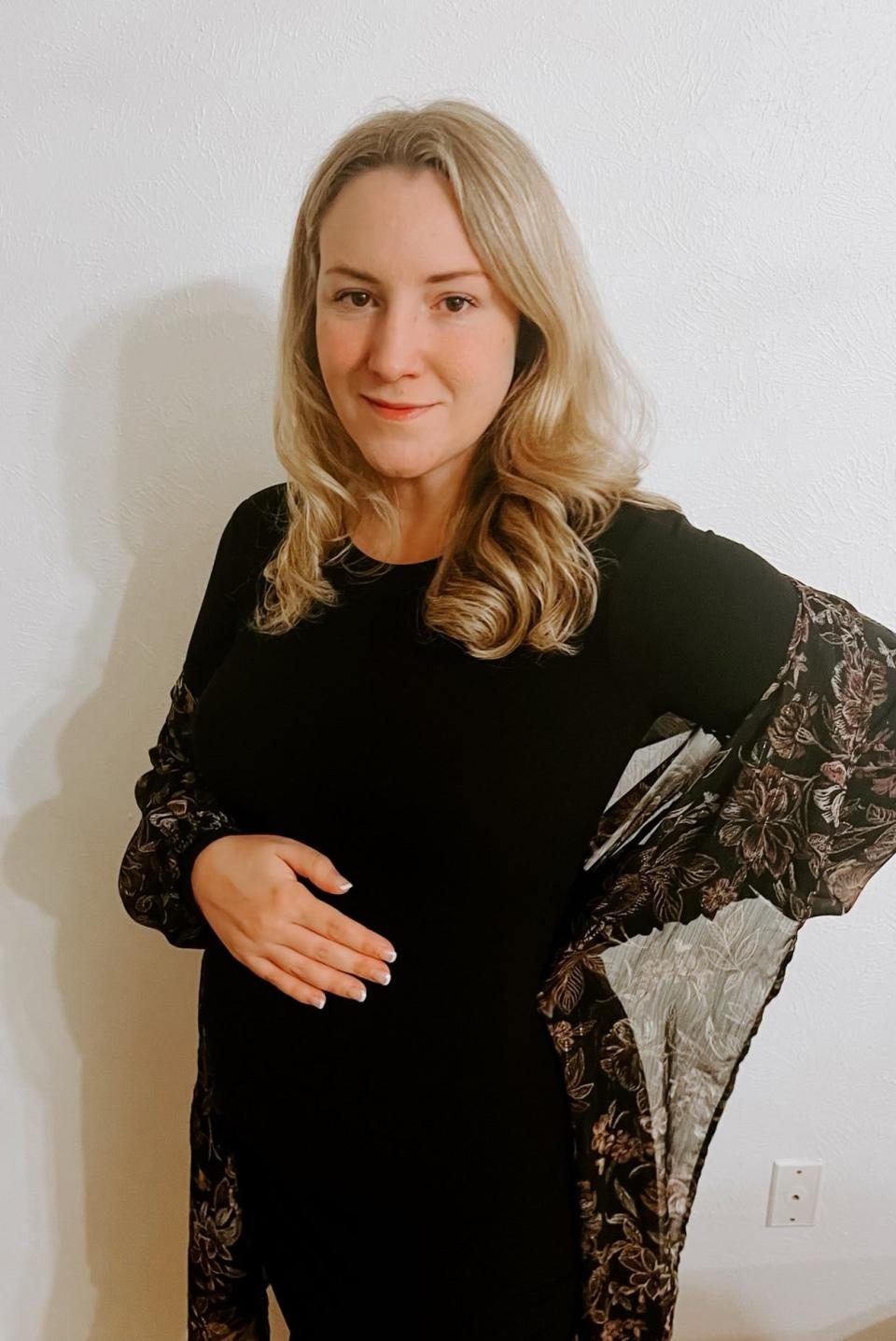Texas judge allows emergency abortion in first case of its kind since before Roe v. Wade
A Travis County state judge on Thursday authorized a woman in Texas to obtain an emergency medically indicated abortion, marking the first such intervention in the state since before Roe v. Wade was decided 50 years ago.
After that landmark U.S. Supreme Court case that guaranteed a federal right to an abortion was overturned in 2022, Texas instituted a near-total abortion ban, with only a few exceptions including life-threatening complications for the mother.
The Center for Reproductive Rights filed the case Tuesday on behalf of Kate Cox, her husband and her OB-GYN. Cox is 20 weeks pregnant, and her fetus has trisomy 18, a deadly genetic condition. The Dallas-area mother of two has been admitted to emergency rooms four times in the past month — including one visit since the case was filed — after experiencing severe cramping and fluid leaks, attorney Molly Duane told the court Thursday.
Several doctors have advised Cox that there is "virtually no chance" her baby will survive and that carrying the pregnancy to term would make it less likely that she will be able to carry another child in the future, according to the complaint. Cox's pregnancy puts her health and fertility at risk for such problems as including gestational hypertension, gestational diabetes, uterine rupture from Caesarean section and post-operative infections, the complaint states.
More than 95% of fetuses with trisomy 18 do not survive to birth, or if they do, are likely to die within minutes or hours, according to the Cleveland Clinic.

On Thursday morning, two days after Cox's case was filed, Travis County state District Judge Maya Guerra Gamble signed a temporary restraining order preventing the state, Attorney General Ken Paxton and the Texas Medical Board from enforcing the state's abortion bans against Cox, her husband or her OB-GYN Dr. Damla Karsan.
"The idea that Ms. Cox wants desperately to be a parent and this law might actually cause her to lose that ability is shocking, and would be a genuine miscarriage of justice," said Gamble, a Democrat, as she delivered her ruling.
Cox, who was onscreen next to her husband in the court hearing streamed online via Zoom, began to cry when she heard Gamble's ruling.
"Every day of this ordeal has been agonizing for (Kate), and today she finally got recognition that she has a right to the health care she needs," Duane, Cox's attorney, told reporters in a call Thursday afternoon. "What is happening in Texas right now is a human rights violation, and I ask you to think about all of the people in Texas who need an abortion right now — for reasons that are wholly their own — who cannot drop everything to file a lawsuit."
The state cannot appeal a temporary restraining order and would instead have to file a writ of mandamus to petition a higher court to block the order, Southern Methodist University law professor Joanna Grossman told the American-Statesman. Cox obtaining the abortion beforehand would render such a case moot, she said. Paxton has not yet announced if he will file a writ of mandamus petition and has not responded to the Statesman's requests for comment.
During the hearing, attorney Johnathan Stone, who is representing the state, argued that state laws are clear and that Dr. Ingrid Skop, an anti-abortion OB-GYN, reviewed the facts as outlined in Cox's petition and did not find evidence that Cox's situation qualifies her for a medical exception. Granting her permission to terminate her pregnancy, Stone claimed, would change the law's meaning.
"If you sign the TRO order as written, you will be effectively saying that the standard in Texas is not reasonable medical judgment," Stone said in the hearing. "Instead, it's a subjective standard, and it's simply a good faith belief. You'd be both be changing the standard for the medical exemption in Texas, and then finding that the plaintiffs ... qualify for that."
The temporary restraining order in this case only applies to Cox's particular situation, meaning it doesn't establish the kind of broad precedent to which Stone refers, Grossman said. But it may serve as a model.
"I think it's good for people to understand that there are lawyers being very creative and looking at every single option," Grossman said. "This is another example of how people might get help if they're in this situation, but it's also a reminder of just how much the law is in flux."
The question of how medical exceptions to Texas' abortion ban can be interpreted and applied in cases of pregnancy complications is at the heart of Zurawski v. Texas, a suit brought by 20 Texas women who were denied abortions, many of them experiencing pregnancy complications like in Cox's case.
That suit, filed in March, alleges that vague language and “non-medical terminology” in state laws leave doctors unable or unwilling to administer abortion care, forcing patients to seek treatment out of state or to wait until after their lives are in danger. Karsan, Cox's physician, is also a plaintiff in Zurawski v. Texas, and Center for Reproductive Rights attorney Molly Duane represents plaintiffs in both cases.
The Texas Supreme Court on Nov. 28 heard Zurawski v. Texas, exactly one week before Cox filed her suit. The Supreme Court is expected to issue a ruling in June.
More: Texas Supreme Court heavily scrutinizes both sides in case challenging abortion bans
This article originally appeared on Austin American-Statesman: Texas judge allows emergency abortion in historic case

